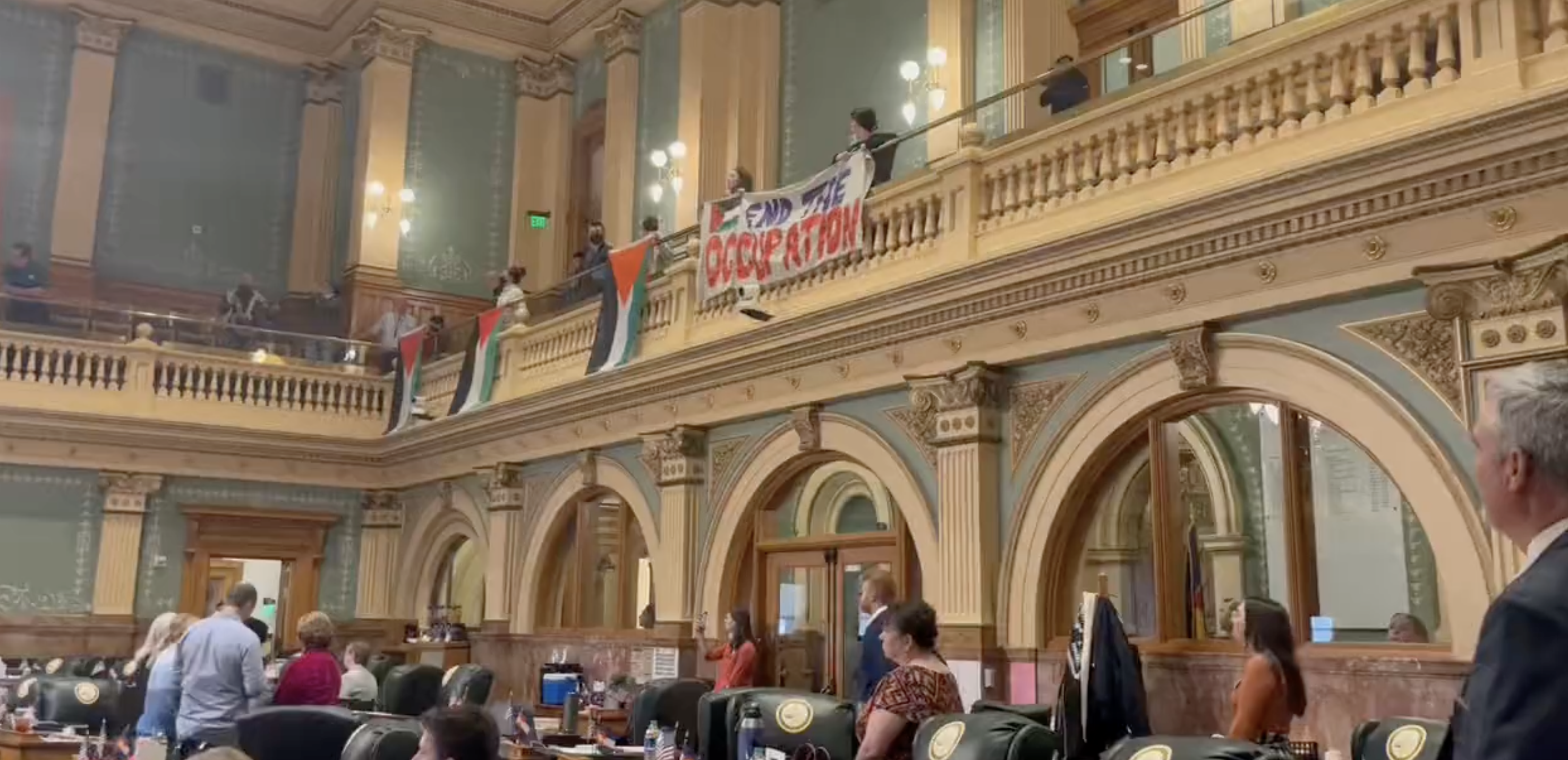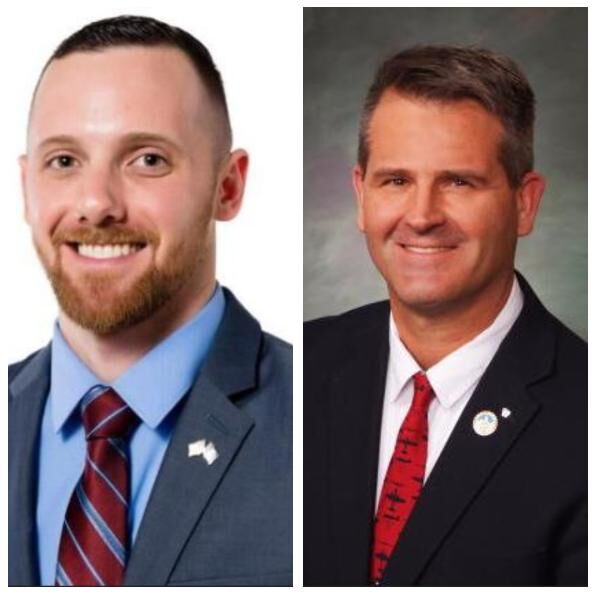Colorado House advances special session bills, Senate modifies main property tax measure

The Colorado state Senate on Saturday made several changes to the Democratic solution to soaring property taxes, notably by increasing the revenue growth rate under which a local government would be eligible to receive a state “backfill.”
“Backfill” means state money that would go a local entity that, as a result of the Democrats’ proposal, won’t collect as much in property tax revenue.
In addition, Senate Democrats added ambulance and emergency services to the entities that would get “backfill” dollars. They also increased the amount that residential and multi-family homes can exempt when calculating property tax liability.
Meanwhile, the House advanced several measures, but not before pro-Palestinian protesters filled the gallery and disrupted the proceedings. They waved flags and shouted at lawmakers. House sergeants and state patrol officers removed the protesters, but they reconvened on the third floor outside the Senate chamber, where they again waved flags and shouted.
State patrol officers finally escorted the protesters out of the building.
Once underway, the House’s took final votes on three bills.
They included House Bill 23B-1008, a supplemental appropriations to the Department of the Treasury to pay the department to administer a property tax deferral program.
The long-standing program allows residential property owners to defer a portion of their property taxes if their taxes have increased above a specified amount. The deferral is a loan that accrues interest and is administered by the treasury department. The legislature reimburses local governments for any revenue lost through the loan program.
The program has drawn 1,000 more applicants in the past year, according to the bill’s fiscal analysis.
The appropriation is small, less than $90,000.
Republicans tried to persuade their colleagues to vote against it.
“Nothing is so permanent as a temporary government program,” said Rep. Kenneth DeGraaf of Colorado Springsm, adding the majority party is not serious about tax relief.
The bill passed on a 40-19 party-line vote, with six Democrats absent.
In casting her “yes” vote, Democratic Rep. Elisabeth Epps of Denver said, “Yes – and yes to the cease-fire.” Presumably, Epps was echoing calls by pro-Palestinian protesters and others for Israel to halt its ground invasion of the Gaza Strip as the latter seeks to neutralize Hamas.
House Speaker Julie McCluskie called Epps out of order.
The House also approved House Bill 23B-1002, which would double the Earned Income Tax Credit from 25% to 50% of the available federal credit for the 2023 tax year only. The bill, as introduced, was set at 75%, but that drove the cost too high – $370 million – for lawmakers to stomach. As revised, the cost sits at $185 million – to be paid for by the Taxpayer’s Bill of Rights surplus.
The EITC, which was part of Gov. Jared Polis’ special session call, is designed to help low- to moderate-income individuals and families reduce their tax liabilities. The credit is determined by income, filing status and the number of children in a family. The bill is expected to assist about 400,000 Coloradans.
Most of the EITC recipients in Colorado are concentrated in the San Luis Valley, Pueblo and southeastern Colorado.
Republicans argued the measure breaks promises with the voters by using TABOR refund money to pay for the increase.
In a statement after the final vote, Rep. Jenny Wilford of Northglenn said, “Boosting this credit will put more money back into the pockets of the people who need it most right now, who are disproportionately people of color, women, and people with a disability.”
The final vote stood at 39 to 20, with six Democrats excused. One Democrat, Rep. Bob Marshall of Highlands Ranch, voted with the Republicans against the measure.
The House also amended the Democrats’ version of a measure that would set up a task force to deal with long-term property tax solutions. The change added a representative of labor, which drew objections from Republicans, who questioned its necessity.
Under HB23B-1003, which Rep. Marc Snyder, D-Colorado Springs, and Sen. Kyle Mullica, D-Thornton sponsored, 14 of the 18 members on the task force would be named by the governor, Senate President or House Speaker. Minority party leaders in the House and Senate would get one appointment each.
The commission’s report is due March 1, although that timeline could be extended by a vote of 11 members, with a final deadline of Dec. 31, 2024.
After an hour of debate, Republicans asked for the nine-page bill to be read at length. Rep. Richard Holtorf of Akron later objected that the appointment structure spelled out in the bill virtually ensures no representation from rural Colorado.
The bill received a final vote of 39 to 21, with two Democrats joining the Republicans in opposing the measure.
The fourth measure on the House calendar was House Bill 1001, which deals with rental assistance. The House did not debate the bill on Friday night, which moves the special session into a fourth day, just as the Senate will also spend one more day.
The House wrapped up its debate on the measure at 2:30 p.m. and called it a day, declining to go to committee to review the only bill sent over by the Senate. That bill deals with a food and nutrition program. The House is set to reconvene at 9 a.m. on Sunday.
In the Senate, lawmakers advanced Senate Bill 23B-002, which deals with the federal summer food and nutrition program, on a 32-2 vote – potentially the only bipartisan vote to come out of the special session.
Senators also tackled Senate Bill 23B-001, the property tax bill that became the subject of an intense fight between the two parties on Friday.
As introduced, the bill would exempt $50,000 from residential and multi-family residential properties from the tax liability calculation and reduce the assessment rate to 6.7% from 6.765%.
The tax relief would be paid for with $200 million from the general fund. Of that, $135 million would go to schools and fire districts, with the rest divvied up among that state’s counties and special districts.
Counties with less than 13.5% growth would be eligible for funding.
Senate Democrats amended the measure on Saturday to do the following:
-
Increase to 15% growth, under which counties would be eligible for the “backfill”
-
Add ambulance and EMS services to the entities covered under the $135 million
-
Increase the value exemption to $55,000 for residential and multi-family residential homes.
The bill, which passed on a voice vote, is headed to a final vote on Sunday, when the senators will also take up the four bills sent over from the House.













